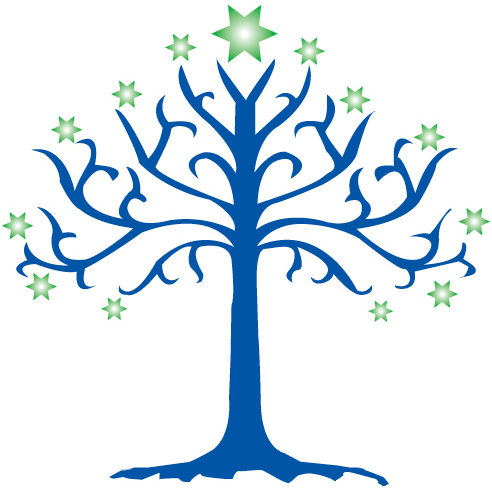Howard Gardner Multiple Intelligence Charter School
MISSION
Howard Gardner Multiple Intelligence Charter School provides an approach to Kindergarten through Eighth grade education that cultivates the potential of each student through the development of their Multiple Intelligences (MI). By focusing on project-based experiences and real-world applications of knowledge, we aim to empower our young people to become independent, self-directed learners, who proactively problem-solve to positively change the world.
Overview
The Howard Gardner Multiple Intelligence School Charter School is a tuition-free public charter school in Scranton, Pennsylvania, United States. The School is located on 9+ acres in the scenic setting of the East Mountain section of Scranton, with nearby parks, trails, and lakes. As a school of choice, 320 students are enrolled in elementary and middle school grades (K- 8). Chartered in 2012 as a regional PA Charter School, the School is authorized by the Scranton and Abington Heights School Districts. The School has had a historical presence in the Scranton area since the mid-70’s as a Laboratory School for the University of Scranton, then a private Montessori preschool and Multiple Intelligences elementary school, with legacy alumni and families who continue to support the School and its evolution over subsequent decades. Led by a Master Facility Plan, the School completed a 12,000 sq. ft. expansion in August 2022 that resulted in an additional 7 classrooms for Middle School students, a new entrance, improved parking and vehicular circulation, and the ability to make full use of the campus for educational and recreational purposes.
What’s unique about our Mission?
The school embraces the educational philosophy of Dr. Howard Gardner, Professor Emeritus, Harvard University Graduate School of Education, and a Scranton native. As only one of a small group of multiple intelligence schools, it is one of two that bears Dr. Gardner’s name. Experiential learning is rooted in Gardner’s theory of nine multiple intelligences: kinesthetic, linguistic, mathematical/logical, spatial, musical, interpersonal, intrapersonal, naturalistic, and existential. It is through these domains or gateways that students experience and understand their external world. It is not the mission of the school to limit which of the nine intelligences a student seems to favor, but rather to educate in a way that honors all nine.
The main strategy for engaging students is to integrate the nine multiple intelligences in instructional pedagogy, learning activities and student reflection. By experiencing activities in all the multiple intelligences, students expand their knowledge of all nine and discover not only their current strengths but also their developing intelligences.
What does Personalized Learning mean at our School?
Classes are multi-aged and ungraded to enable children to begin the study of a subject where they are intellectually challenged and progress as deeply as they can. Teachers either stay with or loop with the same group of students minimally for a two-year period and often for a longer period. The faculty and staff focus on the individual learner to encourage and support students to become independent, self-directed learners. There is a holistic focus on our students. The acronym STAR stands for Safety, Trust, Accountable and Respectful and supports the values espoused by the school. A common refrain heard throughout the School is “you are a STAR student”. STAR is a component of a well-developed Positive Behavior Support Program for which the School has received state-wide recognition. A Multitiered System of Support (MTSS) framework additionally ensures that all students’ academic, behavioral, and emotional needs are addressed, and interventions planned at either a Tier I, II or III level. The MTSS framework is supported by on-site, full-time school psychologist, social worker, school counselor, certified special education supervisor and learning support teachers.
What is the Apprenticeship Model?
Gardner views cognitive apprenticeships as a model for schooling in the 21st century because of the practical nature of learning beside someone who has working knowledge and expertise of a subject, craft, or art. Cognitive apprenticeships are offered across an array of disciplines and at all levels. The experts or “masters” include faculty and staff, parent volunteers, community practitioners and artisans. For example, a student-run store, school newspaper, robotics, videography club, band and environmental outdoor experiences develop skills for students, as apprentices. Additionally, projects and real-world applications are embedded in all subjects and at all levels of achievement.
Why is formative assessment so important?
Formative assessment is the means to understanding and responding to student progress; assessment occurs in multiple ways to include locally developed and research-based assessments, annual state achievement and growth tests – all aimed at producing an authentic assessment to best understand a student’s learning needs and provide opportunities for student’s growth. Using multiple formative assessments and learning portfolios, teachers monitor students’ understanding and application of major concepts and help them move along a continuum toward mastery. Creative problem solving and project-based learning exist in all curricular areas, and at all age levels. Teachers develop rubrics shared with students and families and utilize the rubrics in determining the level of progress individual students make in completing apprenticeships. Further, narrative progress reports accompany trimester grade reports distributed to students and their families.
